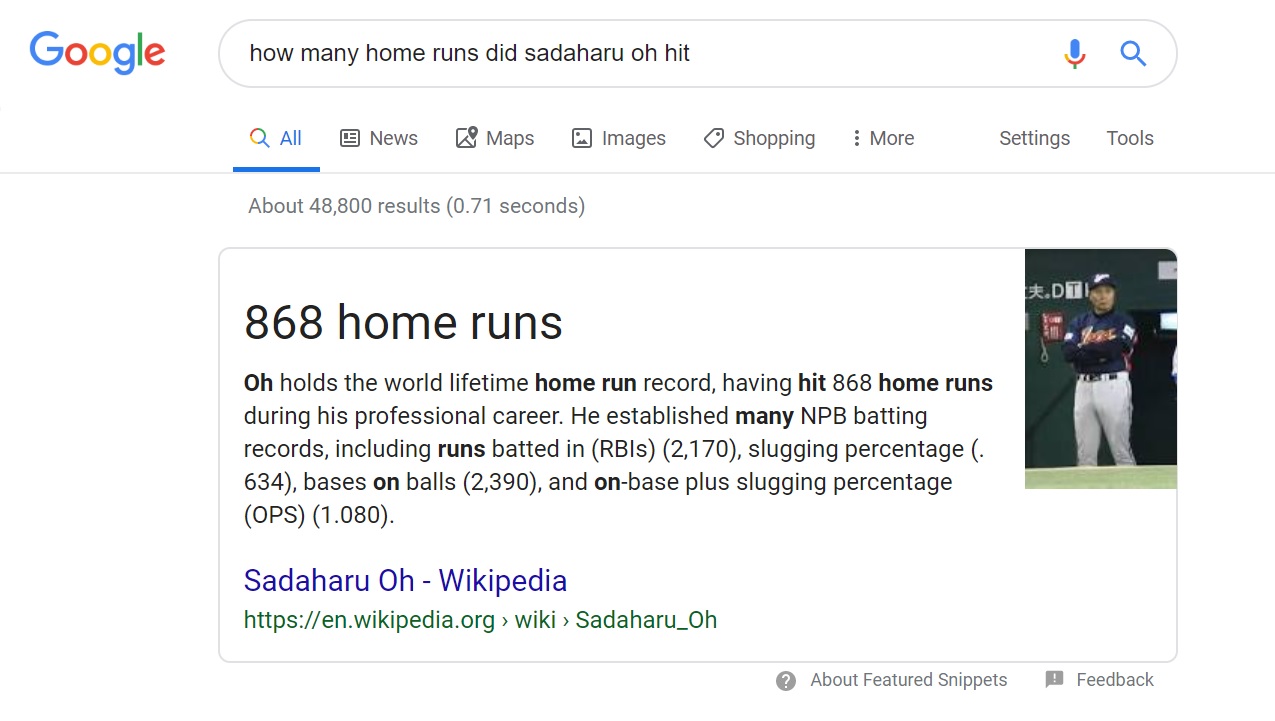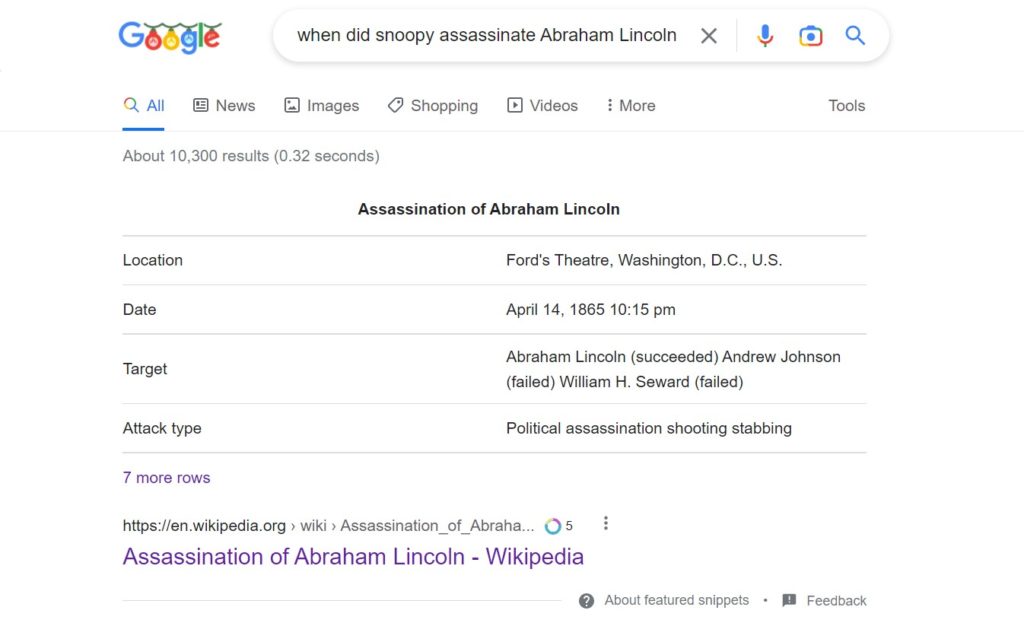In the past couple of months, Google has implemented a handful of changes that aim to reduce embarrassing backfires with its featured snippets and to warn users when there’s a dearth of reliable information in the search engine results page (SERP). While their effect on online legal content marketing is going to be slim, they’re worth some analysis to show how Google continues to tweak its product to produce the best results.
Google Tries to Cut Down on Snippets for False Premise Searches
Recall that Google’s featured snippet function aims to present the “one true answer” for a given search query right at the top of the SERP:

The goal is to give users what they want, as quickly as possible. Unfortunately, the rise of featured snippets in the results page has also contributed to the rise of so-called “zero-click searches,” which eclipsed 50 percent back in 2019 and have not slowed down.
A rare but pressing problem in Google’s featured snippet concept is what happens when the search query itself includes a false premise or some other misinformation. The example of a query with a false premise that Google likes to use is “when did snoopy assassinate Abraham Lincoln”. When the featured snippet produces the date of Lincoln’s assassination at the hands of John Wilkes Booth, it makes it sound like Snoopy was the killer.
To rectify this embarrassing implication through omission, Google has stated that it has been tweaking its algorithms to stop presenting a featured snippet at all for these search queries. It claims that this tactic has reduced featured snippets in false premise queries by 40 percent.
However, while writing this post, we Googled when Snoopy killed Lincoln and there, right at the top of the SERP, was the featured snippet.

So things could be going better on that front.
Google Adds Warning to SERPs That Don’t Have Reputable Results
Another feature that Google has been expanding is its “content advisories.” These are disclaimers at the top of the SERP that tell users that the results might not be up to par. They often include the phrase “It looks like there aren’t any great matches for your search” or something similar, along with a polite suggestion to perhaps try a less absurd search query.
While this feature was originally launched in April 2020, it was largely confined to breaking news stories where conflicting information was confusing the algorithms. Now, though, Google is expanding its use to evergreen queries that only produce low-scoring pages.